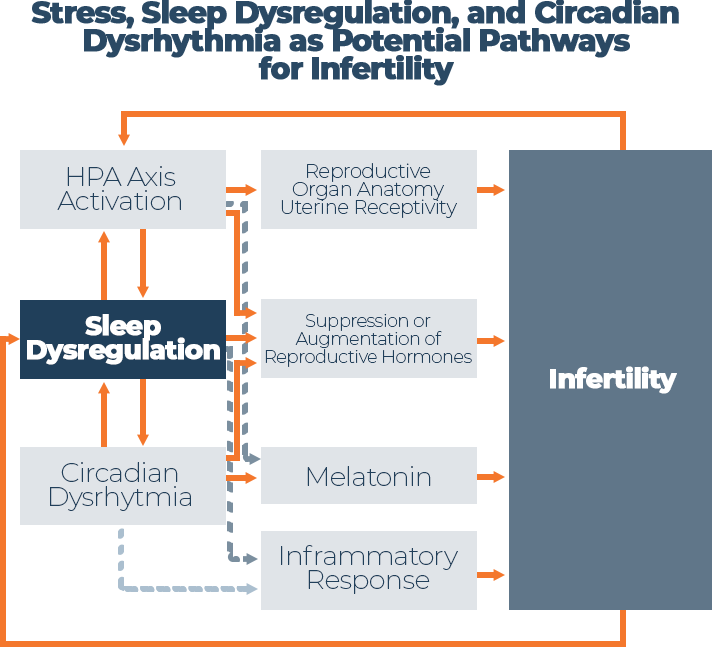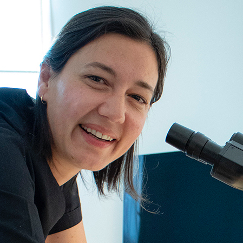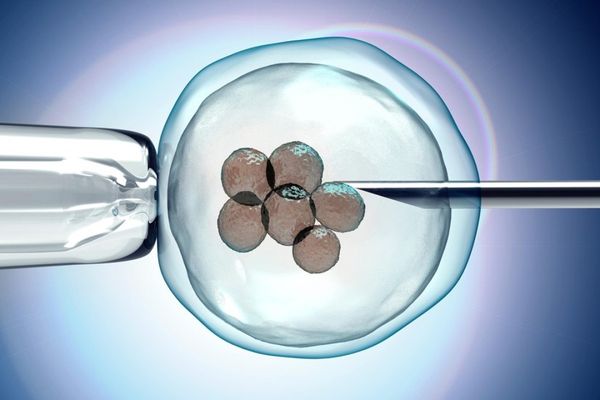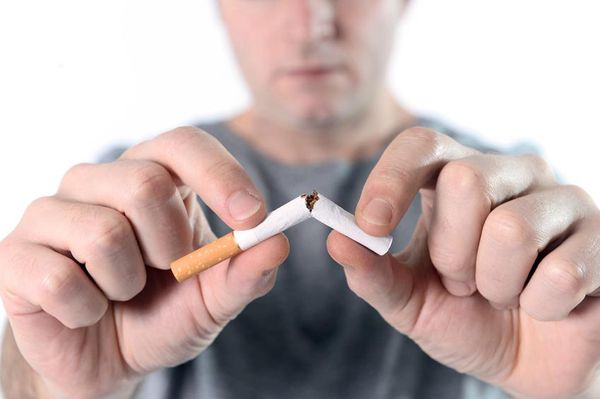In 10 seconds? Emerging research is suggesting that poor sleep or sleep deprivation can not only affect our mental and cardiovascular health by our fertility as well and it is true for both sexes.
What does the research say? Well, where do I start? In the case of men, a 2017 North American study investigated how sleep duration impacted fertility. For this, the team enrolled 1176 couples. They found that when the male partner regularly slept less than 6 hours a night, fecundability for the couple was reduced. The term refers to the chance of achieving a pregnancy within a given menstrual cycle. For women, research paints a more nuanced picture: too little (less than between 7 and 8 hours) or too much (more than 9 hours) sleep can reduce by 25% the chance of getting pregnant, according to another study. One caveat: the study involved 656 women trying for a baby via in-vitro fertilization (IVF).
Hang on, isn't there a link between IVF and sleep disturbances? Indeed, research mentions that around one-third of women undergoing IVF can suffer from it. A large proportion of women receiving various infertility treatments can have sleeping problems. In the case of intrauterine insemination, 35% reported sleeping problems, 23% also did during oocyte retrieval, and 46% during embryo transfer while undergoing IVF. However, there is no clear evidence yet on how stress and disturbed sleep affect pregnancies in this group.
So, what is at play here? Researchers suggest that our biological clocks (circadian rhythms) and reproductive systems (including reproductive hormones, estrogens, progesterone, and androgens) are closely linked. The sleep hormone, melatonin, seems to play several roles in fertility. Indeed, there is a wide variety of studies that suggest a link between melatonin and the regulation the reproductive function. In humans, there is a constant synthesis of melatonin from birth to the age of 30, at which point it decreases abruptly, affecting circadian rhythms.
Ok, but what does it have to do with fertility? Although melatonin has no effect during puberty, it is related to hormone regulation of testosterone and progesterone, and estradiol. In men, melatonin has an impact on sperm parameters, like mobility or morphology of the sperm. While in women, it could affect the ovaries or the uterus by improving ovulation and/or implantation. According to a study published in the American Journal of Epidemiology, young men who sleep little or suffer from sleep disorders produce around 30% less sperm than other men who have regular sleep.

So, what now, should I take melatonin to improve fertility? Some studies suggest that the consumption of melatonin, through dietary supplements, can help prevent damage from environmental contaminants, both in men and women. In animal studies, physiological doses of melatonin (i.e. doses corresponding to doses made by the organism) improve sperm quality, such as concentration, motility, morphology, and vitality, while in female animals have shown an improvement in the oocyte quality – the quality of the immature egg. Despite that, there is no scientific consensus regarding the use of melatonin as a fertility improvement drug (which, by the way, is not legal in some countries). However, a healthy routine can help you sleep naturally, without extra supplements – and thus minimize the negative effects of short sleep on your fertility.
How can I help myself to sleep better?
Habits, like a good sleeping routine, affect our bodies in different ways, some more concretely than others. Here are some tips that you can try to get enough sleep, and improve the quality of your sleep:
1. Create a colder environment, around 20ºC. This can help you to fall asleep and improve your sleep quality.
2. Take a hot shower. The temperature change between the hot bath and colder ambient air makes your brain think it is time for a shut-eye.
3. Expose yourself to sunlight for at least 30 minutes a day. This schedules your body to sleep at the right time.
Our daily life can be stressful and full of social pressures but good habits can positively influence fertility.
Dr. Mónica Faut has distilled 10 research papers, saving you 35 hours of reading time.

The Science Integrity Check of this 3-min Science Digest was performed by Michael Eze.






